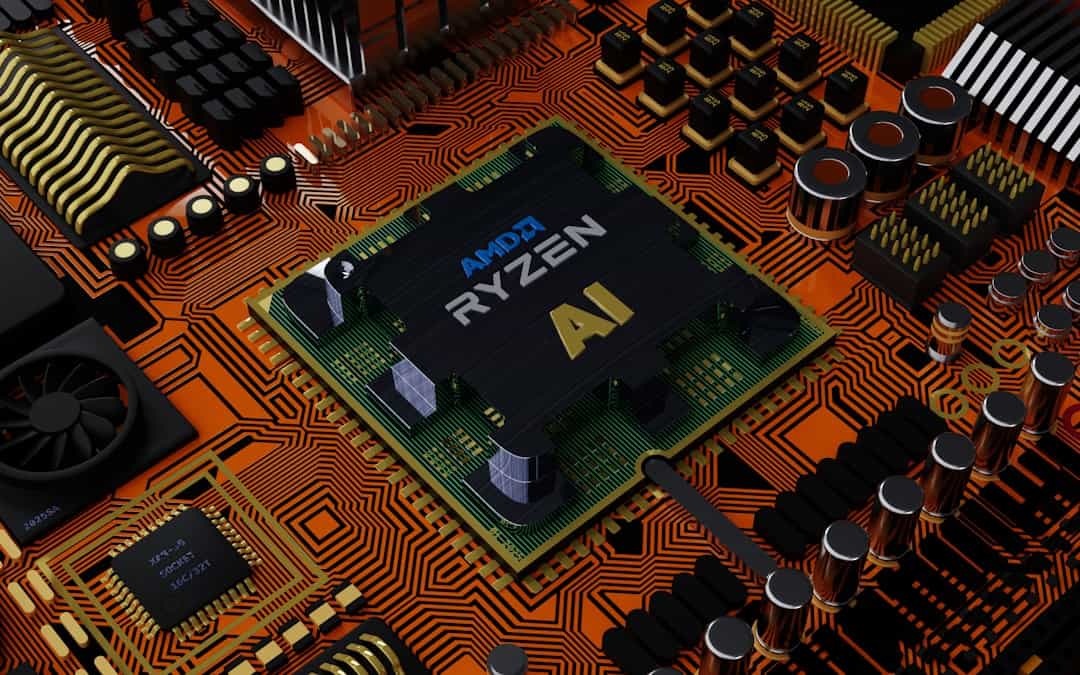Recommender systems play a crucial role in many online platforms, assisting users in discovering new products, services, or content that match their preferences. These systems analyze user behavior and preferences to offer personalized recommendations, thereby improving user experience and increasing engagement. Deep learning, a subset of machine learning, has emerged as a powerful tool for enhancing recommender systems.
Deep Learning algorithms can process and analyze vast amounts of data to identify complex patterns and relationships, enabling more accurate and personalized recommendations. Deep learning utilizes artificial neural networks with multiple layers to process and learn from data. These networks can automatically extract features from raw data, making them well-suited for handling the diverse and unstructured data typically encountered in recommender systems.
By employing deep learning techniques, recommender systems can better understand user preferences, identify subtle patterns, and make more accurate predictions. Consequently, deep learning has gained popularity in the development of recommender systems across various industries, including e-commerce, entertainment, and social media.
Key Takeaways
- Recommender systems use deep learning to analyze and predict user preferences and make personalized recommendations.
- Deep learning enhances recommender systems by processing large amounts of data, identifying complex patterns, and improving recommendation accuracy.
- Using deep learning for recommender systems offers advantages such as better performance, scalability, and the ability to handle diverse types of data.
- Challenges of implementing deep learning in recommender systems include the need for large amounts of labeled data and the complexity of model training and optimization.
- Successful case studies demonstrate the effectiveness of deep learning in recommender systems, such as Netflix’s recommendation algorithm and Amazon’s product recommendations.
- Future trends in AI-powered recommender systems include the use of reinforcement learning, natural language processing, and multi-modal data for more advanced and personalized recommendations.
- AI and deep learning have the potential to significantly impact recommender systems by improving user experience, increasing engagement, and driving business growth.
The Role of Deep Learning in Enhancing Recommender Systems
Deep learning plays a crucial role in enhancing recommender systems by enabling more accurate and personalized recommendations. Traditional recommender systems often rely on simpler algorithms that may struggle to capture the complexity of user preferences and behavior. In contrast, deep learning models can process vast amounts of data and learn intricate patterns, leading to more precise recommendations.
These models can analyze various types of data, such as user interactions, item attributes, and contextual information, to generate personalized recommendations that align with individual preferences. Furthermore, deep learning allows recommender systems to adapt and improve over time as they receive more data and user feedback. The ability to continuously learn from new information enables deep learning-powered recommender systems to stay relevant and up-to-date, ensuring that recommendations remain accurate and reflective of evolving user preferences.
Additionally, deep learning models can handle diverse types of data, including text, images, and audio, allowing recommender systems to incorporate a wide range of information sources for a more comprehensive understanding of user preferences.
Advantages of Using Deep Learning for Recommender Systems

There are several advantages to using deep learning for recommender systems. One key advantage is the ability to handle complex and unstructured data effectively. Deep learning models can process diverse types of data, such as text, images, and audio, allowing recommender systems to incorporate multiple information sources for a more comprehensive understanding of user preferences.
This capability enables deep learning-powered recommender systems to generate more accurate and personalized recommendations, ultimately enhancing user satisfaction and engagement. Another advantage of deep learning for recommender systems is the ability to capture intricate patterns and relationships within the data. Deep learning algorithms can automatically extract features from raw data, enabling them to identify subtle and complex patterns that may not be apparent to traditional algorithms.
By leveraging these capabilities, deep learning-powered recommender systems can provide more nuanced and context-aware recommendations that better align with individual user preferences and behavior. Furthermore, deep learning models can adapt and improve over time as they receive more data and user feedback. This capability allows recommender systems to continuously learn from new information, ensuring that recommendations remain relevant and up-to-date.
As a result, deep learning-powered recommender systems can deliver personalized recommendations that reflect evolving user preferences, ultimately enhancing the overall user experience.
Challenges and Limitations of Implementing Deep Learning in Recommender Systems
| Challenges and Limitations | Details |
|---|---|
| Data Sparsity | Deep learning models require large amounts of data, and sparse data can lead to poor performance. |
| Cold Start Problem | Difficulty in making recommendations for new users or items with limited interaction data. |
| Model Interpretability | Deep learning models are often considered as black boxes, making it difficult to interpret the reasoning behind recommendations. |
| Computational Resources | Training and deploying deep learning models can require significant computational resources, which may not be feasible for all systems. |
| Overfitting | Deep learning models are prone to overfitting, especially with limited data, leading to poor generalization. |
While deep learning offers significant advantages for enhancing recommender systems, there are also challenges and limitations associated with its implementation. One challenge is the need for large amounts of labeled training data to train deep learning models effectively. Gathering and labeling such data can be time-consuming and resource-intensive, particularly for domains with sparse or limited historical interaction data.
Additionally, obtaining high-quality labeled data that accurately represents user preferences and behavior can be challenging, potentially impacting the performance of deep learning-powered recommender systems. Another challenge is the complexity of deep learning models and their computational requirements. Deep learning models often consist of multiple layers and parameters, requiring substantial computational resources for training and inference.
This can pose challenges for deploying deep learning-powered recommender systems in resource-constrained environments or platforms with limited computational capabilities. Furthermore, the complexity of deep learning models may also lead to longer training times and increased computational costs, potentially impacting the scalability and efficiency of recommender systems. Additionally, interpretability and transparency are important considerations when implementing deep learning in recommender systems.
Deep learning models are often regarded as black boxes, making it challenging to understand how they arrive at specific recommendations. This lack of interpretability can raise concerns about trust and accountability, particularly in sensitive domains where transparency is crucial. Addressing these challenges requires developing techniques to enhance the interpretability of deep learning models in recommender systems while maintaining their predictive performance.
Case Studies: Successful Applications of Deep Learning in Recommender Systems
Several case studies demonstrate the successful application of deep learning in enhancing recommender systems across various domains. For example, leading e-commerce platforms have leveraged deep learning models to improve product recommendations based on user browsing and purchase history. By analyzing diverse types of data, such as product attributes, user interactions, and contextual information, these platforms have been able to generate more accurate and personalized recommendations, leading to increased user engagement and sales.
In the entertainment industry, streaming platforms have utilized deep learning-powered recommender systems to enhance content recommendations for users. By analyzing user viewing history, preferences, and contextual information, these platforms can deliver personalized content recommendations that align with individual tastes and interests. This has led to improved user satisfaction and retention, demonstrating the effectiveness of deep learning in enhancing content discovery experiences.
Furthermore, social media platforms have employed deep learning models to enhance friend recommendations and content discovery for users. By analyzing user interactions, social connections, and contextual information, these platforms can generate personalized friend suggestions and content recommendations that reflect individual preferences and behavior. This has contributed to increased user engagement and connectivity within social networks, highlighting the impact of deep learning on improving social recommender systems.
Future Trends and Developments in AI-Powered Recommender Systems

Looking ahead, several future trends and developments are expected to shape the evolution of AI-powered recommender systems. One key trend is the integration of multimodal data sources into recommender systems, enabled by advancements in deep learning techniques for processing diverse types of data such as text, images, and audio. This integration will allow recommender systems to leverage multiple information sources for a more comprehensive understanding of user preferences, leading to more accurate and personalized recommendations.
Another trend is the continued focus on interpretability and transparency in AI-powered recommender systems. As deep learning models become more prevalent in recommender systems, there is a growing need to develop techniques for enhancing the interpretability of these models while maintaining their predictive performance. This will be crucial for building trust and accountability in recommender systems, particularly in domains where transparency is essential.
Furthermore, advancements in reinforcement learning are expected to play a significant role in the future development of AI-powered recommender systems. Reinforcement learning techniques enable recommender systems to learn from user interactions and feedback in real-time, allowing them to adapt and improve over time based on evolving user preferences. This capability will enable AI-powered recommender systems to deliver more dynamic and responsive recommendations that align with individual user behavior.
The Potential Impact of AI and Deep Learning on Recommender Systems
In conclusion, AI-powered recommender systems have the potential to significantly impact various industries by enhancing user experiences through personalized recommendations. Deep learning, in particular, has emerged as a powerful tool for improving recommender systems by enabling more accurate and personalized recommendations based on complex patterns within large volumes of data. While there are challenges associated with implementing deep learning in recommender systems, successful case studies demonstrate its effectiveness in domains such as e-commerce, entertainment, and social media.
Looking ahead, future trends in AI-powered recommender systems are expected to focus on integrating multimodal data sources, enhancing interpretability and transparency, and leveraging reinforcement learning techniques for real-time adaptation. These developments will further enhance the capabilities of AI-powered recommender systems to deliver personalized recommendations that align with evolving user preferences. As a result, the potential impact of AI and deep learning on recommender systems is poised to drive significant advancements in user engagement, satisfaction, and overall experience across various domains.
If you are interested in learning more about the applications of deep learning in recommender systems, you may want to check out the article on “Metaverse and Industries: Entertainment and Media in the Metaverse” on Metaversum. This article discusses how virtual reality and the metaverse are transforming the entertainment and media industries, and deep learning plays a crucial role in powering personalized recommendations for users in these immersive environments. For further reading on this topic, you can also explore the resources and publications listed on Metaversum.
FAQs
What is deep learning?
Deep learning is a subset of machine learning that uses neural networks with multiple layers to learn and make decisions from data. It is inspired by the structure and function of the human brain and is capable of learning from large amounts of unstructured data.
What are recommender systems?
Recommender systems are algorithms that analyze patterns in user behavior and preferences to provide personalized recommendations for items such as products, movies, music, or articles.
How does deep learning improve recommender systems?
Deep learning improves recommender systems by enabling them to process and understand complex patterns in user behavior and preferences. This allows for more accurate and personalized recommendations, leading to better user experiences and increased engagement.
What are the benefits of using deep learning for recommender systems?
Some benefits of using deep learning for recommender systems include improved accuracy of recommendations, the ability to handle large and complex datasets, and the capability to learn and adapt to changing user preferences over time.
What are some common deep learning techniques used in recommender systems?
Common deep learning techniques used in recommender systems include collaborative filtering, content-based filtering, and hybrid models that combine both approaches. Deep learning models such as neural collaborative filtering and deep matrix factorization are also popular choices for building recommender systems.
What are some challenges of using deep learning for recommender systems?
Challenges of using deep learning for recommender systems include the need for large amounts of data to train complex models, the potential for overfitting, and the computational resources required to train and deploy deep learning models. Additionally, interpretability of deep learning models can be a challenge in some applications.











Leave a Reply